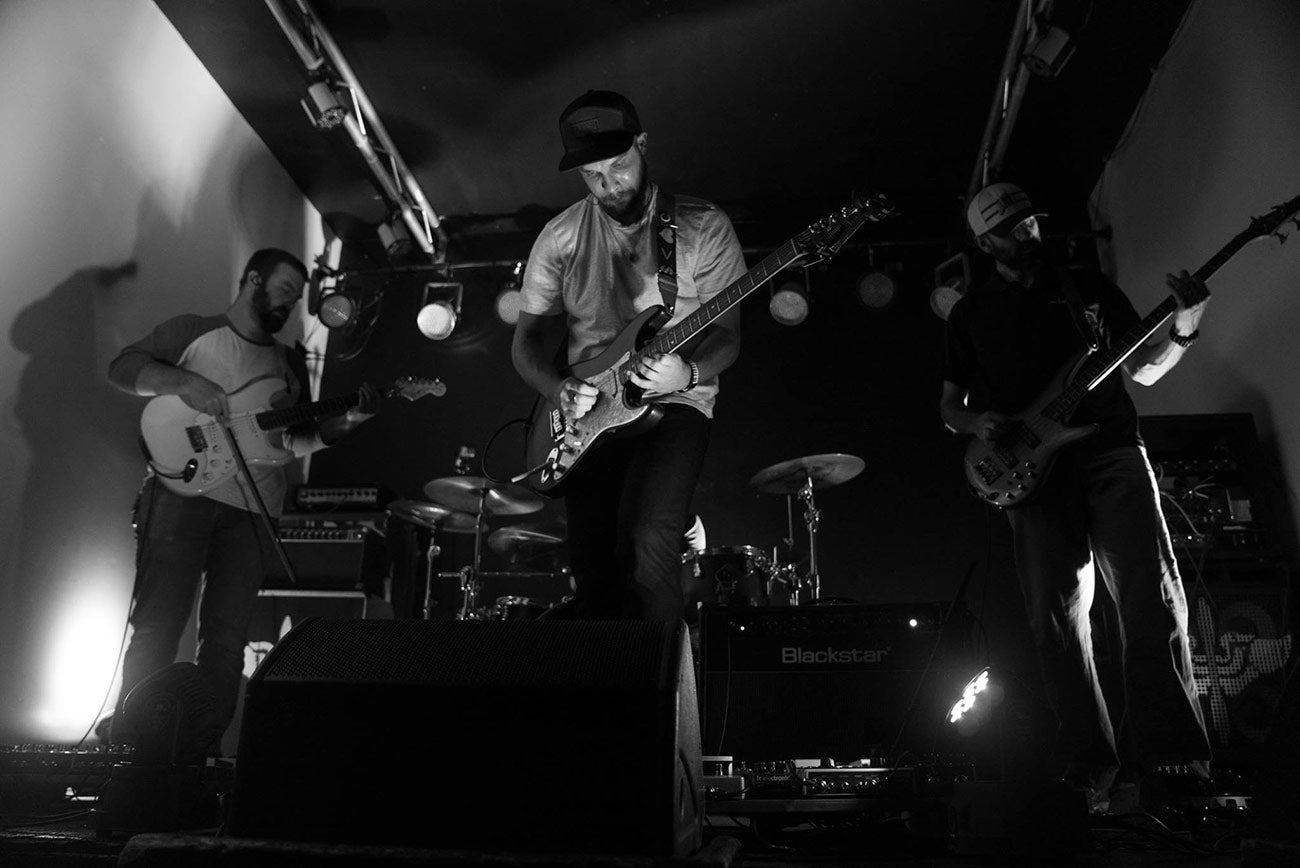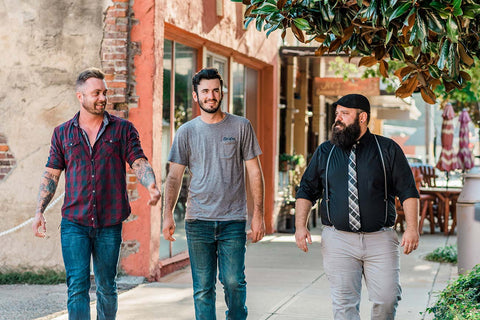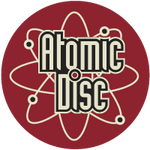When you feel you've saturated your hometown, can fill the venues you play, and run the risk of playing too often, you're ready to embark on your first tour.
Research
It all starts with research. Whether you want to travel the world for years on end, or go out on a short, one-week mini-tour, you need to research potential venues and plan your route. Try to minimize very long drives between venues. Some backtracking is to be expected, but this should naturally be avoided whenever possible.
You can start googling or utilize one of the many databases created for musicians; Indie On The Move, Indie Venue Bible, Musicians Atlas, or Tour IQ. They have subscription plans ranging from free to $6.99/month for Indie On The Move, $9.95/month for Musician's Atlas to $33/month for Tour IQ. Indie Venue Bible sells their directory at a flat fee of $24.95 per region (six regions in the USA) or $99.95 for the whole US directory.

Indie On The Move (IOTM) is really the only one that has a useful free plan, where you can search by location and genre. This gives you a list of venues with basic contact info (address, URL and phone numbers), capacity, genres, age limits, map and ratings (by IOTM members). It also shows you a feed of the venues' calendar via SongKick, as well as photos and videos uploaded by IOTM members. You can even follow a venue to create a list that is applicable to your tour route.
You have to upgrade to the premium membership to get names of booking agents/talent buyers and the ability to email them straight from IOTM. When you start digging into this you'll need to keep your data easily accessible and organized.
I would recommend you copy and paste the venue info to a spreadsheet and include columns for Name of Booker, Preferred method of Communication for Booker, Time Contacted, Notes, Local Bands that have played there, Communication tracking with the local bands, Local Media to Contact, etc.
Even if you pay to subscribe to one of the above-listed services, doing this research will take time. I would recommend you start this process at least 4-6 months before you intend to play your first show.

Contacting Local Bands
Once you've narrowed down the venues you'd like to play, look at their past shows calendar to find local bands that are a good fit for you, and contact them before you contact the venue. Using social media, you should be able to hook up with a band or two.
This way you can present the talent buyer at the venue with a complete bill and a built-in local following.
Contacting Venues
Ultimately the venue wants a full house with the least amount of work on their end. They would rather not have to do any promotion or worry about selling tickets. They're running a business, and in order for them to stay open, they need to make money. A full house means money in the bank. It's very simple.
With this in mind, keep your initial contact short and sweet, and focus on the number of people you expect to bring in.
In your initial email, the subject line should include the date you're hoping to book with your band's name plus the local bands' names. For example: "Booking Inquiry: Sept. 12th - My band's name + the local bands' names."
The body of your email should include how many people you expect to bring. If you've played in the area before, state how many people showed up for your last nearby gig. List the most recent shows the local bands played and include how many people showed up for those.
Add a link to a video of you performing live and your EPK (electronic press kit) or website, as well as the size of your email list and social media following.
Tell them what kind of promotion you're planning on doing.
A small warning: Be realistic here and do not overestimate your draw. If you make a good impression and don't make promises you can't keep, the chances that you'll get booked here again increases.
Follow up with with an additional email if you haven't gotten a reply within a week. If you still don't hear anything - pick up the phone and call them.
Confirming Booking / Contract
Once you have confirmed a booking, send an email to summarize what you've agreed upon. Most smaller venues won't work with contracts so the booking confirmation email is the next best thing. The booking confirmation email should include the following information:
Venue info:
- Address
- Name and phone number for contact person day of show
- Name and phone number for sound engineer day of show
- Venue website
- Parking for band
- Load-in location/directions
- Capacity
- Age restrictions
- Preferred location for your merch table
- Name and phone number to call for advancing
Artist info:
- Contact name and phone number for artist day of show
- Number of band members (+crew if applicable)
- Stage plot
- Artist website
- Promo photo
- Youtube link to embed on venue's website
- Link to EPK and bio
Show info:
- Date and time of show
- Load-in time
- Soundcheck time
- Set times/lengths (for all acts on the bill)
- Door opens time
- Ticket price at door (if applicable)
- Pre-sale ticket price (if applicable)
- Pre-sale ticket link (if applicable)
- Number of guest list spots
- Compensation (guarantee/door split)
- Merch split agreement
- Name of person to settle up with
- Drink/food deal
- Lodging (if applicable)
Advancing
About one week prior to the show you should do your advancing. This means call the venue in advance of the show and confirm all the details listed in your booking confirmation email and get updates on any potential changes. Advancing helps avoid horrific misunderstandings like the club thinking you're bringing your own PA and you thinking they have one. Or even showing up for load-in only to find out that the show is canceled because the club had a fire and no one told you.
It shows the venue that you're professional and have your $h!¡† together.
Promotion
The common goal for you and the venue is to pack the house. In order to do this, the show needs to be promoted. However, often times the venue thinks the band is doing the promotion and the band thinks the venue will take care of it. You should assume it is your responsibility to promote every show you play.
But how do you go about promoting a show in a city you've never been to before...?
First off, ask each venue how many posters they want you to send them. Ask if they will take out any newspaper ads or radio ads or any other type of promotion.
List all your shows on your website. Using Tourbox by Songkick and Bandsintown is always a great way of doing that.
Send a press release to local media. Call a journalist.
Create a Facebook Event for every confirmed gig. Ask people to share it. Ask people if they know anyone on your tour stops.
Include an add to calendar link in your posts so people can easily add your show to their Google Calendar or iCal.
Use social media diligently to reach out to potential fans in every city you'll play. Engage by asking for tips on things to do in each city. Invite people to meet you when you roll into town. Post photos, videos, polls, blogs, podcasts, anything to actively engage with established and potential fans.
Utilize Facebook Ads. Yes, I know this is scary, it means money out of your pocket, but it is very targeted, effective and affordable marketing, and you can set the budget at what is comfortable for you.
Use your email list to inform people of your upcoming shows. It's okay to send an email to the entire list about your whole tour, but when sending individual show invites and reminders, segment your list by zip code so you don't blast people in Nashville about your show in Seattle.
+ How to build an email list from scratch
+ 5 Types of Emails to Send Your Fans
Life on the road
 Touring is one of the most exciting things you'll do in your life. You'll get to meet a lot of new people, see new places, and overcome numerous challenges you haven't foreseen.
Touring is one of the most exciting things you'll do in your life. You'll get to meet a lot of new people, see new places, and overcome numerous challenges you haven't foreseen.
To stay healthy and sane and keep your expenses low, make a habit of stocking up on food and water at grocery stores, rather than hitting fast food places. Make sure you schedule in some fun stuff, some alone time and be respectful and kind to those you travel with.
Say "Thank You"
Reach out to venues after you leave and thank them for letting you play there. People often forget how important a simple "thank you" is. Stay in touch with talent buyers and venue managers for potential future gigs there. The music business is often times all about who you know and how you present yourself to them, so make sure you make a good impression wherever you go.
Now, start booking your next tour and tell us all about it!
